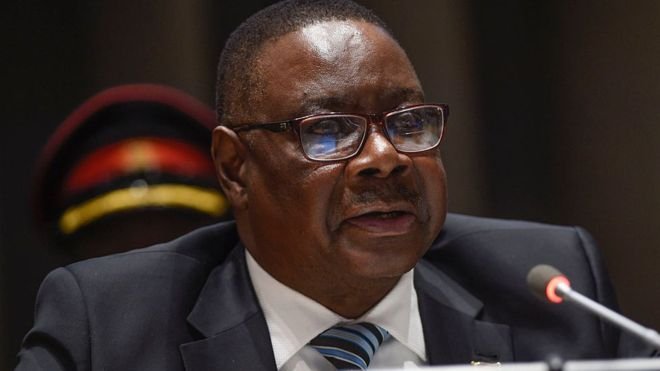Malawi’s President Peter Mutharika has told his challengers in the May 21, controversial Elections to accept a loss and concentrate on their role of opposition until 2024 when the country will have another general election.
Mutharika whose legitimacy is being challenged in court said Saturday, he was legitimately elected in an election indorsed by many International Elections observers and countries as free and fair.
Lazarus Chakwera, president of the main opposition Malawi Congress Party ( MCP ) and Saulos Chilima, the former vice president who also contested against Mutharika are challenging the elections results , claiming they were rigged in favor of Mutharika.
Chakwera who came second from Mutharika and Chilima third, demand the court to nullify the elections results, claiming they were marred by several irregularities such as changing vote figures on Malawi Electoral Commission’s result sheets in favor of Mutharika, using a collection fluid called Tipex.
“They shall remain in opposition till 2024,” said Mutharika during a public event held in Mphalombe district in Southern Malawi.
Mutharika also spoke against the on going national wide protests led by the civil society organisations under the banner of Human Rights Defenders Coalition , calling on Ansah, the Chairperson of Malawi Electoral Commission to resign for mismanaging the elections.
“I am against these violent protests,” said Mutharika who has always linked them to an attempt to over throwing his government by the coalition members in collaboration with the two opposition leaders .
“They are destroying roads, offices and other property, they are looting people’s shops but we shall revenge that by building others.
“As I challenged you during campaign that you can’t win, the people voted for their government in a free and fair election, accept the loss and you will remain in opposition untill 2024,” said Mutharika amid jubilation from his party supporters .
The court is expected to start hearing of the elections case on July 29. This appears to be the first elections case to attract huge public attention since the country’s first multiparty elections in 1994.
